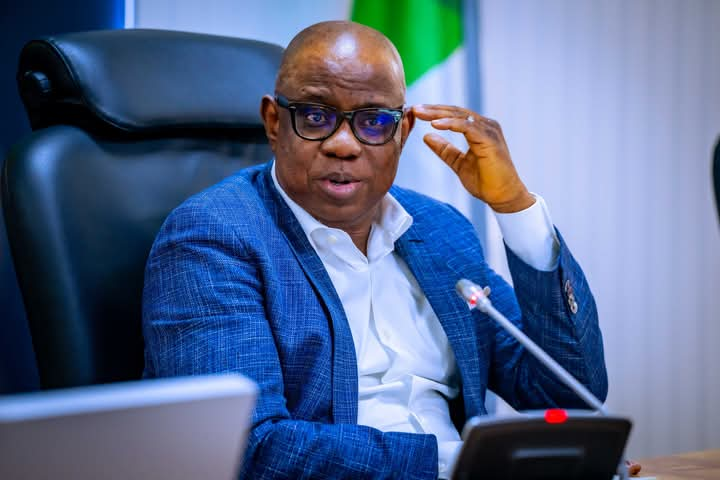The Socio-Economic Rights and Accountability Project (SERAP) has initiated legal proceedings against the Nigerian National Petroleum Company (NNPC) Limited, demanding accountability for a staggering N825 billion and $2.5 billion in public funds.
These substantial sums were reportedly earmarked for the rehabilitation of the nation’s refineries and other oil-related revenues.
The lawsuit, filed last Friday, July 11, 2025, at the Federal High Court in Lagos (suit number FHC/L/MISC/722/25), stems from alarming allegations contained in the 2021 audited report by the Auditor-General of the Federation, which became public on November 27, 2024.
READ ALSO: SERAP to Tinubu: Prosecute those blocking NDDC audit report
The urgency of the matter has been further amplified by comments from Aliko Dangote, President of the Dangote Group, who recently cast doubt on the future functionality of NNPCL refineries despite an alleged $18 billion already spent on them.
SERAP is seeking a court order of mandamus to compel the NNPCL to account for and explain the whereabouts of the alleged missing N825 billion and $2.5 billion designated for “refinery rehabilitation” and repairs.
The organisation is also seeking a court order to compel NNPCL to recover and remit these alleged missing public funds to the Federation Account.
It is also seeking a court order to compel NNPCL to identify those responsible for the missing oil money, surcharge them for the full amount, and hand them over to relevant anti-corruption agencies for investigation and prosecution.
In its legal arguments, SERAP contends that the serious accusations made by both the auditor-general and Dangote suggest a grave breach of public trust, violating provisions of the Nigerian Constitution, national anti-corruption laws, and the country’s international human rights and anti-corruption commitments.
SERAP posits that a favourable ruling would be a significant step against impunity, ensuring that the funds are recovered for the benefit of all Nigerians, whom SERAP describes as ‘NNPCL’s victims.’
The organisation highlights that these alleged financial discrepancies have severely undermined Nigeria’s economic development, exacerbated poverty, and contributed to the government’s high deficit spending.
“The vast majority of Nigerians have seen little benefit from their country’s oil wealth, even as the NNPCL continues to fail to account for the missing billions of dollars that are desperately needed to repair or replace the country’s dysfunctional refineries,” SERAP argued in its filing.
The organisation noted that the auditor-general has consistently documented instances of public funds disappearing from the NNPCL over many years, with Nigerians bearing the brunt of the consequences.
The suit, filed by SERAP’s lawyers, Kolawole Oluwadare, Ms Oluwakemi Oni, and Ms Valentina Adegoke, partly reads: “The missing oil revenue reflects a failure of NNPCL’s accountability more generally and is directly linked to the institution’s continuing failure to uphold transparency and accountability principles.”
The 2021 auditor-general’s report detailed several alarming instances of alleged financial mismanagement totalling ₦82.95 billion, and called for urgent recovery and accountability measures.
“₦82.95 billion allegedly went missing from funds meant for refinery rehabilitation and repairs. These deductions were made from crude oil and gas sales between 2020 and 2021. The auditor-general expressed concern that the funds may have been misappropriated and demanded their full recovery and remittance to the Federation Account without further deductions.
“Also, a total of ₦343.64 billion was deducted from domestic crude sales under the pretext of pipeline maintenance and management. These deductions were made unilaterally, and the Auditor-General suspects misappropriation. He recommended that the funds be recovered, remitted to the treasury, and that those responsible be handed over to the EFCC and ICPC for investigation.
“₦83.66 billion described as miscellaneous income from NNPC joint venture operations between 2016 and 2020, was withdrawn from the CBN/NNPC sinking fund account. The Auditor-General noted that this withdrawal forced the Federation to rely on borrowings and demanded the recovery and remittance of the amount.
“₦204.85 billion was unjustifiably deducted from oil royalties in 2021—funds originally meant for the Department of Petroleum Resources (now NUPRC). The Auditor-General raised concerns about diversion and called for the recovery of the sum. A sum of ₦3.75 billion was reportedly paid to a company as a shortfall on the sale of an MT cargo of PMS. The auditor-general questioned the payment’s legitimacy and demanded the recovery of the funds.
“₦28.65 billion in bridging allowance remained outstanding from NNPC Retail for the year 2021. The Auditor-General recommended its recovery. ₦13.56 billion in unpaid bridging allowance claims remained with three major oil marketers in 2021. The Auditor-General warned that the failure to recover these funds may have negatively affected the 2021 budget and demanded their return by both NNPC Retail and the marketers involved.
“₦15.22 billion, comprising ₦14.13 billion and ₦1.08 billion, remained unpaid by 26 oil marketers as revenue debts for 2021. The Auditor-General requested the full recovery and remittance of these debts to the Federation Account. $29.65 million in royalties remained unpaid to the Department of Petroleum Resources’ CBN account. The Auditor-General expressed concern that the shortfall adversely affected the 2021 budget and sought its recovery.
READ ALSO: SERAP demands probe into unremitted N500bn oil funds, presses NNPCL for transparency
“$2.26 billion in oil royalties due from oil companies for 2021 was not collected by NNPCL. The Auditor-General raised concerns over the uncollected revenue and demanded urgent action. Additionally, ₦48.22 billion in outstanding oil royalties from oil companies were not recovered by NNPCL. The Auditor-General warned that the funds may be missing and called for their recovery from the companies involved.”
As of the time of this report, no date has been scheduled for the hearing of the suit.



